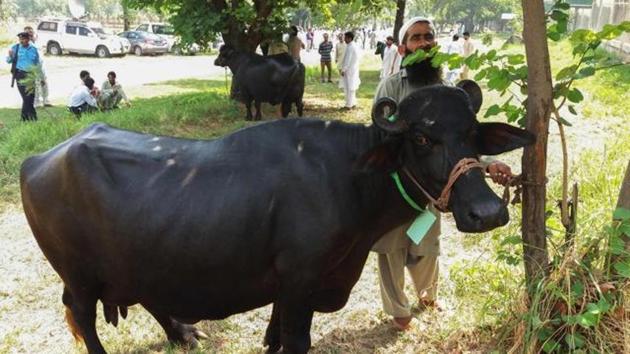‘High traces of lead, mercury in buffalo milk’: Study
While the World Health Organisation (WHO) has set a standard of 0.01 parts per million (ppm) for lead in milk, the samples from Borivli recorded 0.03ppm and those from Goregaon recorded 0.026ppm for the metal.
A study of 100 samples of buffalo milk, produced in dairies in and around the city, found that the some of them contained toxic metals, such as lead and mercury, in higher concentration than what is acceptable. Researchers said the proximity of the farms to industrial areas could be the reason behind the high concentration of metals.

The study, ‘Quantitative analysis of toxic metals in buffalo milk samples from Mumbai suburban Region by ICP-AES’ by the department of pharmacology and toxicology, Bombay Veterinary College, Parel, examined samples from dairy farms at Borivli, Kalyan, Bhiwandi, Goregaon and Thane to determine presence of arsenic, mercury, lead and cadmium in buffalo milk. It was recently published in Journal of Animal Health and Production.
While the World Health Organisation (WHO) has set a standard of 0.01 parts per million (ppm) for lead in milk, the samples from Borivli recorded 0.03ppm and those from Goregaon recorded 0.026ppm for the metal. Samples from Bhiwandi contained 0.009ppm mercury and those from Thane had 0.01ppm of the metal — much higher than the WHO standard of 0.001ppm.
Samples from Kalyan were found having both mercury (0.002ppm) and lead (0.014) higher than permissible standards. The samples didn’t show any remarkable traces of cadmium and arsenic. Researchers said exposure of dairy farms and buffaloes to industrial areas could be one possible reason for the high levels of metals. “Metals in the milk are a result of exposure of animals to certain factors like eating grass contaminated with metals, drinking water from contaminated sources,” said author Dr Ashwini Kambli, in the study.
However, the study ruled out water as the possible source of contamination. Dr Jayant Khandare, director and scientist, Right To Research, Pune, who developed a chemical analysis strip to test the milk adulteration said the findings need to be reconfirmed by Food and Drugs Administration to be accepted. “Milk adulteration is a known phenomenon but presence of toxic metals is a serious matter and must be studied. The findings should be shared with the FDA, which can confirm the same and take cognizance of the matter,” he said.



